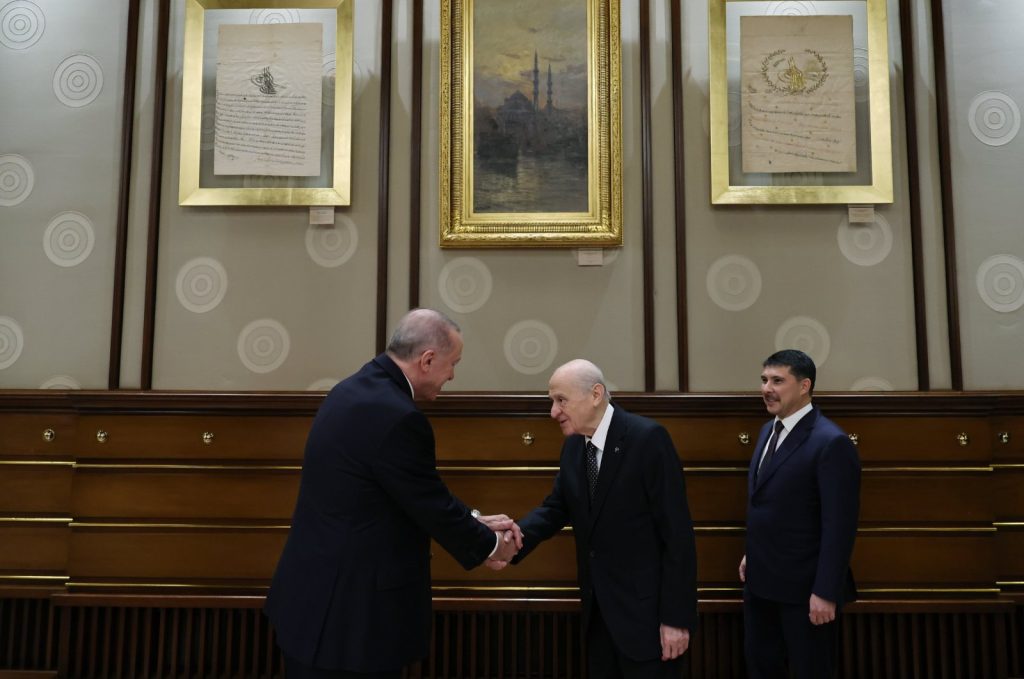The opposition parties and their supporting opinion-makers seem to have a habit that can be described as political laziness: instead of creating impactful policies, they constantly pin their hopes on a fracture within the ruling party or coalition. This habit reflects a flawed belief that every new political development will lead to cracks in the People’s Alliance, signaling the downfall of the government and paving the way for their own rise. However, such expectations have no grounding in political reality. Holding onto this kind of hope is, from the outset, a sign of weakness for a political party – it signifies a lack of confidence in their own policies.
Looking back, it becomes clear that during periods of heightened tension among opposition actors, discussions often surface about supposed disagreements within the ruling bloc. Over time, various claims have been made about differences of opinion between Nationalist Movement Party (MHP) leader Devlet Bahçeli and President Recep Tayyip Erdoğan. Yet, even during significant challenges, no serious issues or fractures have arisen within the People’s Alliance or between its leaders.
If one day, a rift were to emerge in the People’s Alliance, it certainly would not be over the matter of “determination in the fight against terrorism.” Claiming a disagreement on the “terror-free Türkiye goal” may stem from a failure to correctly interpret the messages conveyed in speeches by the two leaders. Alternatively, when political analysis lacks a holistic perspective, predictions often fail to stand the test of time.
Since the moment Bahçeli extended a hand to the Peoples’ Equality and Democracy Party (DEM Party) representatives in Parliament, his subsequent statements have consistently emphasized distinguishing the issue of terrorism from broader Kurdish-related matters. He repeatedly underscores the necessity of uninterrupted counterterrorism efforts.
Similarly, in various speeches and statements, President Erdoğan has reiterated that there will be no concessions in the fight against terrorism, particularly in cross-border operations. These declarations clearly show there is no divergence in approach between the two leaders on this issue.
Nevertheless, during a period when Bahçeli’s remarks were being interpreted as ushering in a new political climate, the appointment of trustees to some DEM Party municipalities was presented as concrete evidence of cracks within the alliance. However, an examination of Bahçeli’s remarks during the MHP group meeting on Nov. 12 reveals his firm stance on the matter. In that speech, Bahçeli stated, “It is an illegitimate and unlawful despicable contradiction to simultaneously engage in politics and lean on armed terrorists whose heads deserve to be crushed.”
He also clarified his position by saying, “DEM’s unwillingness to distance itself from weapons and terrorism, as well as its intensification of provocative and hostile actions, must be addressed in accordance with the Turkish Penal Code. This issue has no connection, relevance, or proximity to my Kurdish brothers and sisters.”
Similarly, during his return from Azerbaijan, President Erdoğan made a parallel statement to reporters on the plane, saying, “While maintaining strong cohesion within our nation, we will continue to give no quarter to terrorism. Strengthening our internal unity does not mean turning a blind eye to terrorist organizations exploiting national resources and handing them over to terror barons.” In response to a question, he added, “There is no place in Türkiye’s future for terrorism or terrorism-backed politics,” nearly echoing Bahçeli’s words.
An alliance, by definition, comprises different parties. Naturally, they employ varying political styles and rhetoric when explaining matters to their constituencies and the public. These differences in approach are actively managed by the leaders through direct communication to prevent any impact on the internal dynamics of the alliance. While alliance politics undoubtedly present challenges, it is equally important to recognize the opportunities they offer in navigating critical issues.


